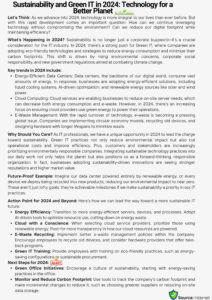Transform Your Financial Wealth Journey with Cutting-Edge Solutions:

Introduction:
The financial wealth industry is undergoing a profound transformation, driven by technological advancements and the rise of fintech (financial technology) solutions. From digital payments to blockchain-based currencies, these innovations are reshaping the way we manage money, conduct transactions, and invest. In this comprehensive exploration, we’ll delve into the top five fintech software solutions that are revolutionizing finance and driving the future of the industry.
- Digital Payment Platforms:
In today’s digital age, cash and checks are quickly becoming relics of the past. Digital payment platforms have emerged as the preferred method of conducting transactions, offering convenience, security, and speed. Whether it’s paying for groceries, splitting a bill with friends, or making online purchases, digital payment platforms have become integral to our daily lives.
Leading the charge in this space are platforms like PayPal, Venmo, and Square Cash. PayPal, one of the earliest pioneers of digital payments, revolutionized online commerce by providing a secure and convenient way to send and receive money electronically. Venmo, acquired by PayPal in 2013, quickly gained popularity among millennials for its social payment features, allowing users to share payments and emojis with friends. Square Cash, launched by Square Inc., offers a simple and intuitive interface for peer-to-peer payments, as well as the ability to buy and sell Bitcoin.
These digital payment platforms have not only simplified the payment process but have also opened up new opportunities for businesses to reach customers and streamline their operations. With features like instant transfers, mobile card readers, and in-app purchases, digital payment platforms are driving innovation in commerce and shaping the future of retail.
- Robo-Advisors:
Traditional wealth management services were once reserved for the wealthy elite, with high fees and minimum investment requirements putting them out of reach for many investors. However, the rise of robo-advisors has democratized investing, making it accessible to investors of all backgrounds and income levels.
Robo-advisors are automated investment platforms that use algorithms to provide personalized investment advice and portfolio management services. By analyzing factors such as risk tolerance, investment goals, and time horizon, robo-advisors can create diversified portfolios tailored to individual needs.
Platforms like Betterment, Wealthfront, and Robinhood have become synonymous with the robo-advisor revolution. Betterment, founded in 2008, was one of the first robo-advisors to enter the market, offering automated portfolio management and tax-loss harvesting. Wealthfront, founded in 2011, distinguishes itself with features like direct indexing and high-interest cash accounts. Robinhood, launched in 2013, disrupted the industry with its commission-free trading model and user-friendly interface, attracting a new generation of investors.
Robo-advisors have not only lowered the barrier to entry for investing but have also introduced innovative features like automatic rebalancing, tax optimization, and socially responsible investing. With low fees and minimums, robo-advisors offer an accessible and affordable alternative to traditional wealth management services, empowering investors to build wealth and achieve their financial goals.
- Peer-to-Peer Lending Platforms:
Peer-to-peer lending platforms have emerged as a viable alternative to traditional banking institutions, offering borrowers lower interest rates and investors higher returns. These platforms connect borrowers directly with investors through online marketplaces, bypassing traditional financial intermediaries.
Platforms like LendingClub, Prosper, and SoFi have revolutionized the lending landscape, providing alternative financing options for individuals and small businesses. LendingClub, founded in 2006, was one of the first peer-to-peer lending platforms to gain widespread attention, offering personal loans, business loans, and auto refinancing. Prosper, launched in 2005, differentiates itself with its proprietary credit scoring model and transparent fee structure. SoFi, short for Social Finance, started as a student loan refinancing platform before expanding into other financial products like personal loans, mortgages, and investment accounts.
Peer-to-peer lending platforms use technology to assess creditworthiness, facilitate loan origination, and automate the loan servicing process. By cutting out the middleman, these platforms can offer borrowers lower interest rates and investors higher returns compared to traditional banking products. With features like fractional investing, automated investing, and diversification, peer-to-peer lending platforms provide a compelling alternative for both borrowers and investors.
- Blockchain and Cryptocurrency:
Blockchain technology has captured the imagination of the finance industry, offering unprecedented security, transparency, and decentralization. At the heart of blockchain technology is the concept of a distributed ledger, which records transactions across a network of computers in a tamper-proof and immutable manner.
Cryptocurrencies like Bitcoin, Ethereum, and Ripple have gained mainstream acceptance as digital assets with real-world utility. Bitcoin, created in 2009 by an anonymous individual or group of individuals known as Satoshi Nakamoto, introduced the world to the concept of decentralized digital currency. Ethereum, launched in 2015 by Vitalik Buterin, expanded upon Bitcoin’s vision by enabling smart contracts and decentralized applications (DApps). Ripple, founded in 2012, focuses on facilitating cross-border payments and remittances for financial institutions.
Blockchain technology has far-reaching implications for the finance industry, with applications ranging from digital currencies and tokenization to supply chain management and identity verification. Decentralized finance (DeFi) platforms built on blockchain technology are reimagining traditional financial services like lending, borrowing, and trading in a trustless and permissionless manner. With features like programmable money, self-executing contracts, and peer-to-peer transactions, blockchain and cryptocurrency are revolutionizing the way we think about money and finance.
- Personal Finance Management Tools:
Managing personal finances can be a daunting task, but fintech solutions have made it easier than ever to budget, track expenses, and save money. Personal finance management (PFM) tools leverage technology to provide insights into your financial health, helping you set goals, track spending habits, and optimize your savings and investments.
Platforms like Mint, YNAB (You Need a Budget), and Personal Capital have become indispensable tools for millions of users seeking to take control of their finances. Mint, acquired by Intuit in 2009, offers a comprehensive suite of features, including budgeting, bill tracking, and credit score monitoring. YNAB, founded in 2004, takes a proactive approach to budgeting, focusing on giving every dollar a job and breaking the paycheck-to-paycheck cycle. Personal Capital, launched in 2009, caters to high-net-worth individuals with its wealth management tools and investment advisory services.
PFM tools aggregate financial data from various sources, including bank accounts, credit cards, and investment accounts, to provide a holistic view of your finances. With features like automatic transaction categorization, goal tracking, and investment analysis, these tools empower users to make informed financial decisions and achieve their long-term objectives. Whether you’re saving for a vacation, planning for retirement, or paying off debt, personal finance management tools can help you stay on track and achieve financial freedom.
Conclusion:
The financial industry is undergoing a period of rapid transformation, driven by technological innovations and the rise of fintech solutions. From digital payments and robo-advisors to peer-to-peer lending and blockchain-based currencies, these innovations are reshaping the way we interact with money and revolutionizing the finance industry as a whole.
By leveraging technology, fintech solutions are democratizing access to financial services, increasing efficiency, and enhancing the overall customer experience. Whether it’s simplifying the payment process, making investing accessible to all, or reimagining traditional banking services, fintech is driving innovation at every level of the financial ecosystem.
As fintech continues to evolve and disrupt traditional financial systems, the future of finance has never looked more promising or exciting. By embracing these innovations and staying ahead of the curve, individuals and businesses alike can unlock new opportunities for growth, prosperity, and financial well-being in the digital age.






